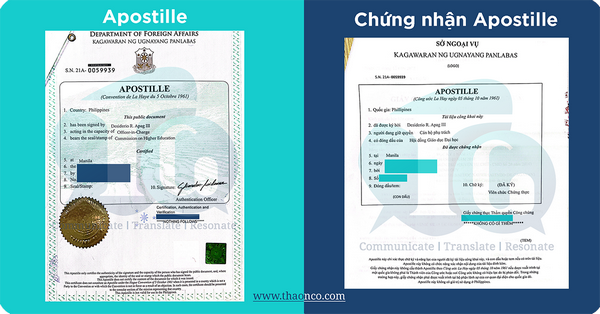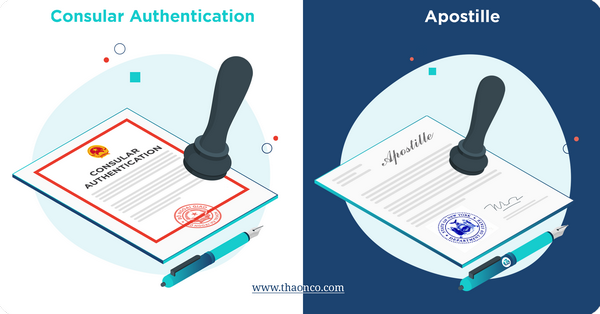When carrying out administrative procedures abroad, it is mandatory to have personal documents legalized. To enhance international exchanges and collaboration, Apostille was created as a step forward to help streamline procedures involving public documents.
So, what exactly is it? What is the application process for this type of certification? Let’s explore the answers to these questions together with Thao & Co. in this article.
For an individual to travel, work, or live in another country, their documents must be recognized by the government of the host country before becoming valid for use Apostille, in simple terms, is a form of attestation granted under the provisions of the Hague Convention on the Apostille itself to verify the seals and signatures on documents issued by an official entity.
Apostille is usually provided by the Ministry of Foreign Affairs of the host country. It is only effective in countries that have joined the 1961 Hague Convention. The 126 countries that have joined the Apostille Convention to date are as follows:
This type of certification is often required for documents such as:
Foreign individuals and organizations should produce Apostille-certified papers in the following instances to help the implementation of administrative procedures relating to:
In accordance with the Hague Apostille Convention, the following public documents are eligible to apply for it:
In general, almost any legal document can apply for Apostille except in the following cases:
The answer is no. Apostille authorities include the following:
One thing to keep in mind is that these agencies must be recognized in the Apostille’s list of member states to issue this form of certification.

Apostille and Consular Authentication are both mandatory processes if you want to use documents in another country. However, their purpose and applicability remain distinct.
Consular Authentication makes it easier for local governments to monitor the validity and legal compliance of foreign documents used in their jurisdiction.
The Apostille system, according to the Hague Conference on Private International Law (HCCH), helps businesses and individuals reduce the time and resources spent on administrative procedures by facilitating the legalization of foreign papers. However, in some cases, the authorities may still require consular authentication.
The Apostille only applies to countries that are members of the 1961 Hague Convention. Non-member countries must get consular authentication instead.
If either the issuing country or the country of destination is not a party to the Apostille Convention, you will need to go through the Consular Legalization process. For example: Documents issued by the United States will require consular legalization before they can be used in Vietnam.
The exact application procedure is as follows:
The average process time for an Apostille application is 2-3 days. Nowadays, you can also find various translation agencies that offer supplementary Apostille services.
For unaccustomed foreigners, the Apostille application process with its various legal procedures and documents may pose some challenges. Recognizing this difficulty, Thao & Co. translation company is pleased to introduce notarized translation services to assist you in acquiring Apostille in a professional, accurate, and timely manner.

With many years of experience handling complex administrative and legal documents with certified translation services, we guarantee to meet all of our client’s requirements, ensuring satisfaction and convenience. Thus, what have led many clients to work with us throughout the years?
Applying for Apostille is an important step to kick-start your oversea study, business, and employment. Therefore, should you wish to learn more about the procedures and regulations regarding Apostille application or Thao & Co.’s services, please contact us at our Get a Quote page. Our consultants will be delighted to answer any questions and assist you in your endeavor.